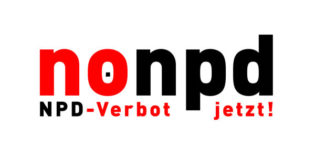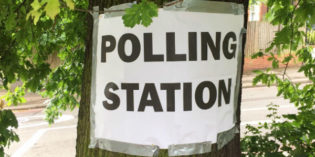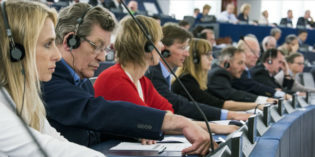Elections and electoral systems

Dual candidates running for the Welsh Assembly campaigned harder
There has been some controversy (and indecision) in Wales about whether National Assembly candidates should be allowed to stand for both a constituency and the regional list. Peter Hain argued it showed ‘utter contempt’ for voters, because someone who was rejected as an individual could nonetheless be elected. In the first two Assembly elections it […]

Germany no longer bans extremist parties. But which European democracies do, and why?
As a last resort, democracies occasionally ban political parties. Angela Bourne and Fernando Casal Bértoa look at what kinds of parties have been outlawed in post-war Europe, and how the rationale for banning them has evolved. They explain how, early in 2017, Germany effectively put its party ban beyond use, forbearing even to close down […]

75 more votes in the right places – that’s all the Conservatives would have needed to govern alone
If just 75 people in the right constituencies had voted differently in the 2017 General Election, Theresa May would now have a working majority in the Commons. Chris Terry (Electoral Reform Society) examines some of the more extraordinary anomalies thrown up by the first-past-the-post system this year. In North East Fife the SNP beat the […]

A tale of two referendums, but similar Remainers: 1975 and 2016
The British public has voted on membership of the EU on two occasions. In 1975, based on a turnout of 64 per cent, two-thirds voted to stay in the EEC, cementing Britain’s place for the next four decades. In 2016, on a turnout of 72 per cent, 52 per cent of the public voted to […]

Audit 2017: How well does the UK’s media system sustain democratic politics?
The growth of ‘semi-democracies’ across the world, where elections are held but are rigged by state power-holders, has brought into ever-sharper focus the salience of a country’s media system for the quality of its democracy. Free elections without some form of media diversity and balance clearly cannot hope to deliver effective liberal democracy. As part […]

Audit 2017: How strong is the democratic integrity of UK elections? Are turnout, candidacies and participation maximised?
Across the world, there are many countries ‘where elections take place but are rigged by governments or unfairly conducted. And even in core liberal democracies (like the United States) political parties have now become deeply involved in gerrymandering constituencies and partisan efforts at ‘voter suppression’. As part of our 2017 Audit of UK Democracy, Toby S […]

Outsourcing democracy to an algorithm: the tyranny of the tactical voting site
Anti-hard Brexit and ‘progressive’ sites that advised voters which of their local candidates to vote for were a popular feature of the 2017 General Election. Annabel Mullin questions the democratic legitimacy of effectively outsourcing one’s vote to an algorithm, and argues that detailed party manifestos have a deadening effect on political debate. Image: Google’s predictive […]

The absent demos: radical ideas for transforming the way MEPs are elected
Brexit has pushed European law-makers to seriously talk about rebuilding the EU. Miriam Sorace argues that calls for democratising the EU political system have to be addressed immediately, and that priority should be given to reforms of the European elections. She advocates a uniform Open-List Proportional Representation System with small constituencies and the possibility for national parties to […]




 Democratic Audit's core funding is provided by the Joseph Rowntree Charitable Trust. Additional funding is provided by the London School of Economics.
Democratic Audit's core funding is provided by the Joseph Rowntree Charitable Trust. Additional funding is provided by the London School of Economics.